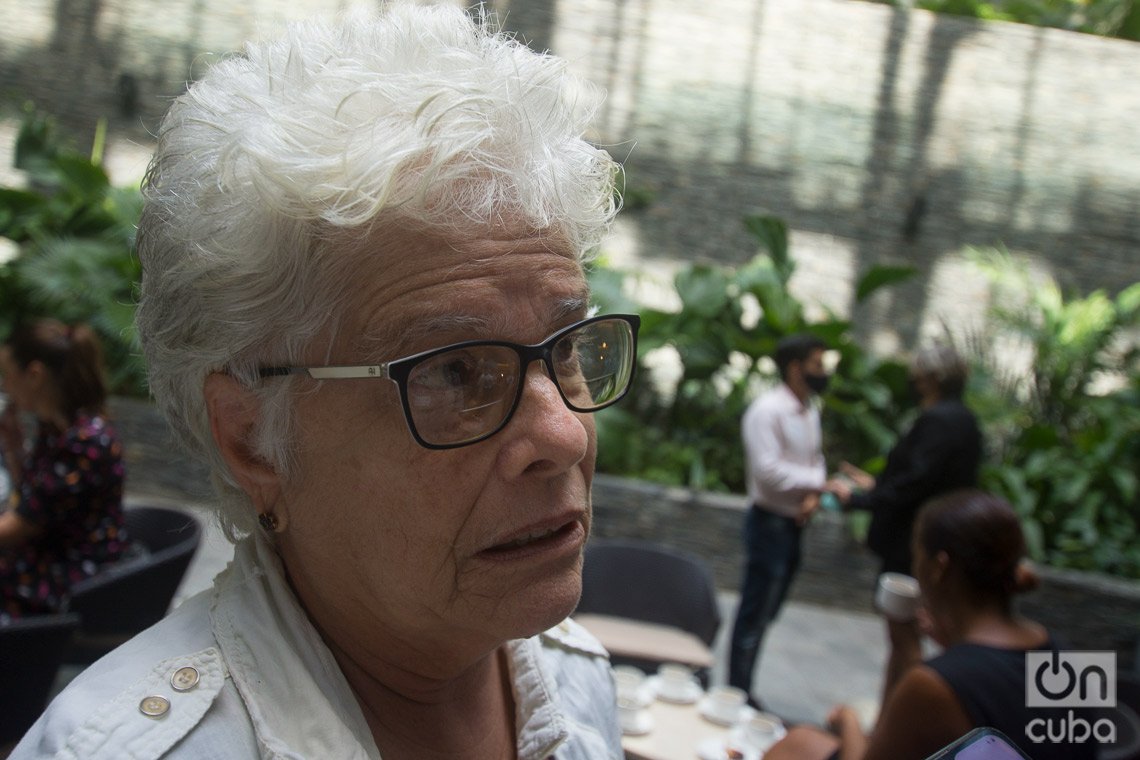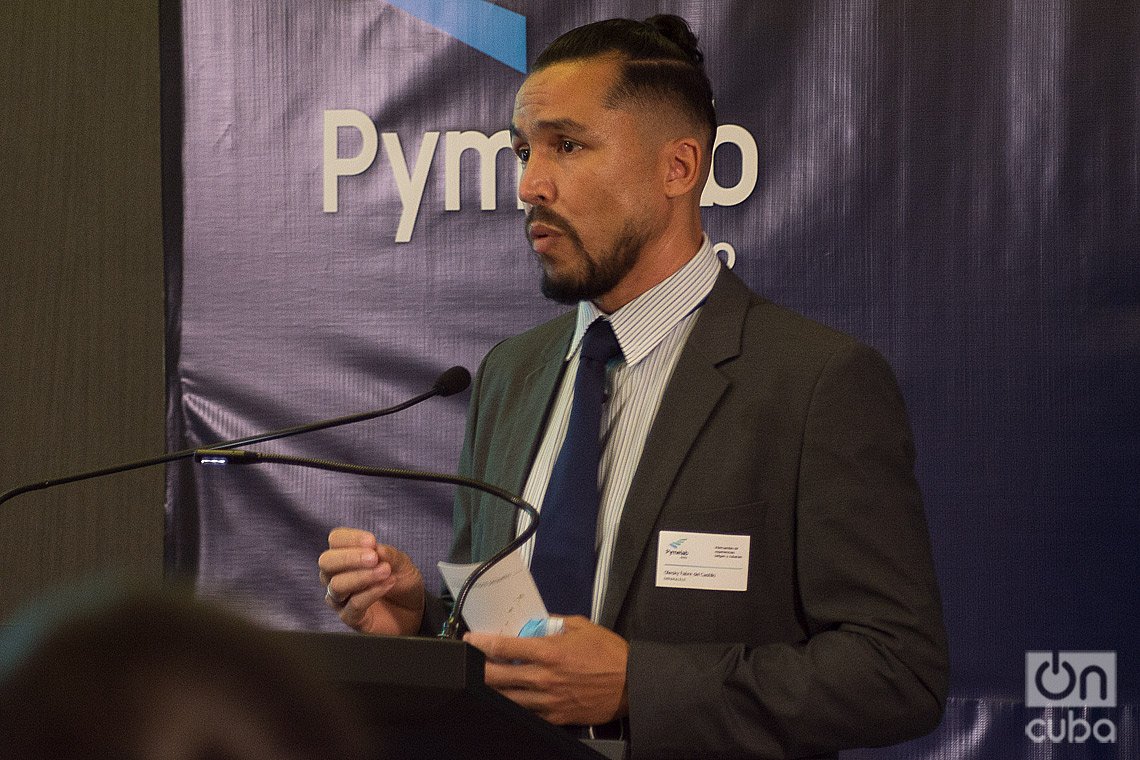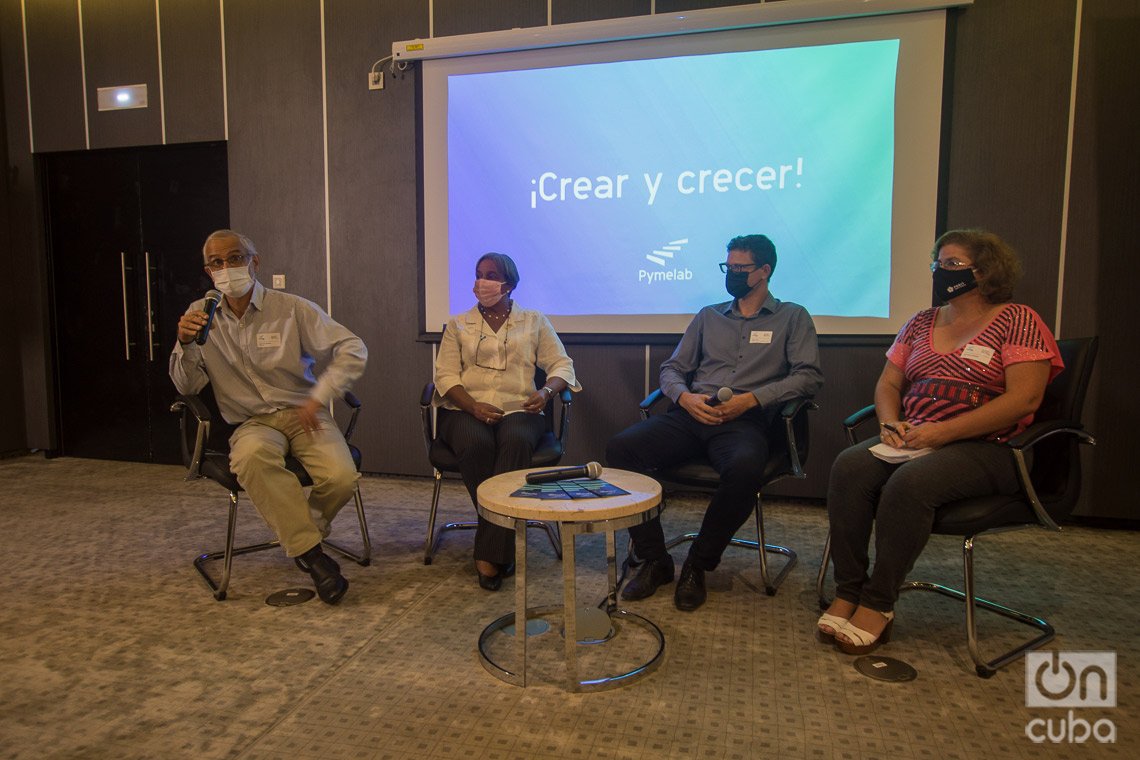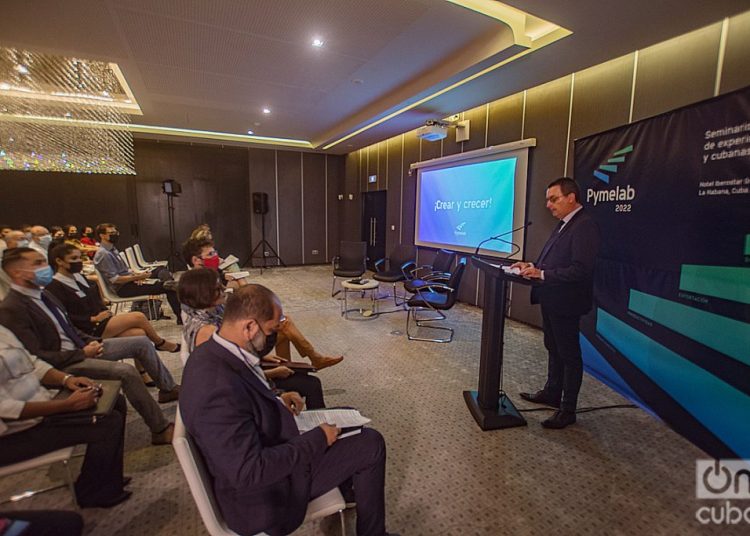A little over a year ago, talking about micro, small and medium-sized enterprises (MSMEs) in Cuba was still a dream. As recently as December 2020, when the first edition of the Pymelab event was held in Havana, the regulations authorizing their creation had not yet been approved, although the possibility had already been officially handled and many people, both in the private sector and in the state and academic environment, advocated for their necessary legalization and insertion in the economic fabric of the island.
Sixteen months later, at the time of the second edition of the meeting — organized by the Embassy of the Kingdom of Belgium in Cuba, the hub.brussels agency and the Cuban Ministry of Economy and Planning (MEP), in collaboration with the Delegation of the European Union (EU) and AUGE SRL ― the reality is different. Since the authorization of the first 35 Cuban MSMEs last September, there are already more than 3,000 of these new economic actors, most of them private (3,093), to which are added 51 state-owned, and 50 non-agricultural cooperatives (CNA), according to data updated this Thursday. Of them, 56% correspond to reconversions of pre-existing businesses, 114 are part of local development projects, while construction, services, food production and the manufacturing sector are currently leading the way in their conformation.
Not everything is running smoothly. Quite a few contradictions and difficulties persist that hinder the process, some of them derived from the very complex Cuban economic context ― spurred on by the impact of the pandemic and the U.S. sanctions, and also by flaws in the design and implementation of the economic reforms, which have caused, among other things, high inflation ― while another part is the consequence of internal obstacles ― mental, bureaucratic, regulatory ― that emerge as the process advances, as part of the adaptation and learning process that this supposes for all the actors involved in it, and also of tensions, ways of thinking and insufficiencies rooted for decades in the Cuban economic and institutional system.
Pymelab pointed to all this in December 2020, as a wake-up call about the challenges that this opening could face once it began on the island, and it pointed to it again now, in its new edition held this Thursday at the Iberostar Grand Packard Hotel in the Cuban capital. The meeting, which was attended by Jean-Jacques Bastien and Isabel Brilhante Pedrosa, ambassadors of Belgium and the EU in Cuba, respectively, and Johana Odriozola, deputy minister of the MEP ― who were in charge of the opening remarks ―, as well as by other authorities, diplomats, private and state businesspeople, representatives of banking institutions and experts; it was once again a space for the presentation of positive experiences ― such as those of the Belgian Citydev SME and the Cuban EMSI FARMA ―, and had among its special moments the announcement by the Belgian Oddo, a world leader in business management systems, of free access for Cuba to its online platform with all its tools and modules, as a way to support the management of the new economic actors on the island.
But, mainly, this Thursday was a day conducive to exchange, alertness and reflection on the existing obstacles and challenges in order to clear the still incipient path of Cuban MSMEs. In this, several participants agreed, it was once again its greatest success.
“Events like this are very important, because they make visible the work that has been done and also the difficulties and challenges that persist, they give rise to exchanges that are always worthwhile, and, in addition, they allow establishing contacts with other actors, with authorities, and even with cooperation agencies, which can offer their support, their experiences, their ideas and good practices,” Dr. Ileana Díaz, coordinator of the Entrepreneurship Network of the University of Havana, said to OnCuba, even though she regretted that, due to its reduced nature, not all the entrepreneurs who would surely like to participate can be present at the meeting.
For the specialist, its realization takes place in a “very opportune” context ― an opinion with which Ambassador Bastien and Deputy Minister Odriozola agreed in their initial presentations ―, because, although it is true that MSMEs have already been legalized, “there are still many things to do” to promote their development and their “effective” and “coherent” articulation in the island’s economy.
“It is true that with the legalization an important first step was taken, a first push, but that alone is not enough: now the ecosystem must be changed. The country’s business ecosystem is made for the state enterprise, and it is necessary for this ecosystem to include the new actors, in order to achieve the necessary linkages, to achieve complementarity and effective articulation,” she pointed out. “The entire system of legal regulations, the entire system of rules, including the unwritten rules, is made for the state enterprise. So, that makes the change involve more work, as a process, and therefore more consultations, more training, more forms of financing, a better tax system is necessary; that this whole process be better and more coherently articulated, which, after all, is still beginning, but which is key to future economic performance.”

Of learning, obstacles and financing
Like Dr. Díaz, Oliesky Fabre del Castillo, founding partner of Enparalelo SRL — a private MSME for the production of microgreens in urban spaces — and one of the speakers at the event, celebrated the holding of Pymelab 2022, a meeting that he did not hesitate to classify as “very necessary,” despite the fact that, according to what he told OnCuba, “sometimes the results of this type of event do not reach the ears of those who have to hear it and they remain in a closed framework.” From his perspective, there is a “will” to continue advancing by all the actors and entities that participate in the process, and “safe steps” have been taken by the authorities, but they continue to be slow on many occasions, and there is still “a lot of bureaucracy on all kinds of issues.”
“The first group of Cuban MSMEs has had to open the way, and learn as we go, and not only us, but also the state institutions in charge of the process, but it seems to me that greater accompaniment between all parties is necessary. There is a lot of support, for example, from the Ministry of Economy and Planning, but the same does not happen with other agencies,” he pointed out. Faced with this reality, which may even be contradictory to the official government discourse, he considers it is necessary to “keep pushing, pressing,” and also “working and learning,” “doing what we have to do to get ahead, and make the most of opportunities like this for exchange and learning, which serve to learn about other experiences, to debate, and also to open doors and exert pressure to change the regulations that do not fulfill their mission and establish promotion policies for MSMEs and the rest of the new Cuban economic actors.”
In this sense, he thanked the presence at the meeting, together with authorities and specialists from the MEP, of representatives of Cuban banks and other possible credit opportunities for ventures like his, in an event that had as the main focal point of its discussions the role of financing for the emergence and consolidation of MSMEs, and the mechanisms have access to them. In this regard, he did not hesitate to acknowledge that the existence of “knowledge gaps” on the part of the entrepreneurs themselves, on issues such as financial education and culture, but also warned about the importance of greater flexibility in negotiations, of “more advice and accompaniment” by state entities, and also the existence of “other alternatives,” taking into account, he reasoned, that “any enterprise needs financing for its development, and even more so if it is just starting out.”

A great deal of Pymelab 2022 passed precisely along these lines. It dedicated a panel moderated by journalist Ariel Terrero, an expert in economic issues, on this particular subject. During the panel discussion, both the main speakers and the entrepreneurs and officials who intervened from the audience, made clear the need to reconcile positions, promote the culture of training and accounting of the new actors, and temper the existing mechanisms and regulations to the current scenario. The need for more expeditious ways to access credits and microcredits, both in Cuban pesos and in foreign currency, the presentation of projects and rigorous feasibility studies to financial entities, the contradictions between regulations in force and adequate communication to take advantage of opportunities existing today, were among the aspects debated.
The bank representatives defended the importance of presenting complete documentation that allows for possible credits to be guaranteed and provides logical repayment guarantees ― an aspect that, for example, has been the reason why, of the 69 requests from Cuban MSMEs received by the Financiera Iberoamericana S.A., none have been approved so far and only three are in advanced study, according to Arminda García, director of that entity ― , while the entrepreneurs advocated for access to risk and promotion funds that allow the initial drive to those who are starting their businesses, and for more favorable time lines for procedures and to repay loans.
In summary, Terrero himself considered it evident that “there are many opportunities on this path, but also great challenges.”
“That this articulation of banking with MSMEs and enterprises in general works well is not only an opportunity for these enterprises or for banking, but also for the entire economic, financial and monetary system of the country to work in a better way and reach better results,” opined the moderator, while emphasizing that, along with promoting a greater economic culture among entrepreneurs, and businesswomen and businessmen, “banks also need a culture of innovation and cannot remain thinking that the rules and the regulations that it has been applying for decades are the same ones that will continue to give results in a scenario that is changing.”

Regarding the development of the meeting, Jean-Serge Dias de Sousa, economic and commercial counselor of the Belgian diplomatic representation, confirmed to OnCuba the satisfaction of the organizers with the debate fostered by the meeting.
“Our purpose as the Embassy of Belgium has been to promote an exchange between all the actors involved in this process in Cuba, and to provide the new business community with the possibility of learning about other experiences,” he commented. “This is why we have organized it with the Cuban authorities, with the MEP, which is the body that directs this process, and we open the doors to other institutions and MSMEs, because ultimately this is an event that takes place in Cuba, which has its own specificities and situations as a country. And it seems to us that this edition has been very interesting, because there has been a great deal of exchanges, very open and productive.”
“The event has been a propitious space for people to talk, debate, present their points of view, listen to the perspectives of the other party, and seek joint solutions to problems,” Dias de Sousa pointed out. “I am sure that today’s debates can bear good fruit. And although these results cannot be completely predicted, it seems to us that the foundations are there. Now what is missing, and it is something to which we could dedicate a future edition, is to promote training, a business culture, to advance businesses and ultimately contribute to the development of SMEs, because, although it is true that they have weaknesses and problems, it is also true that, in aspects such as innovation, employment, local development, they are fundamental today for the economy of a country.”
















